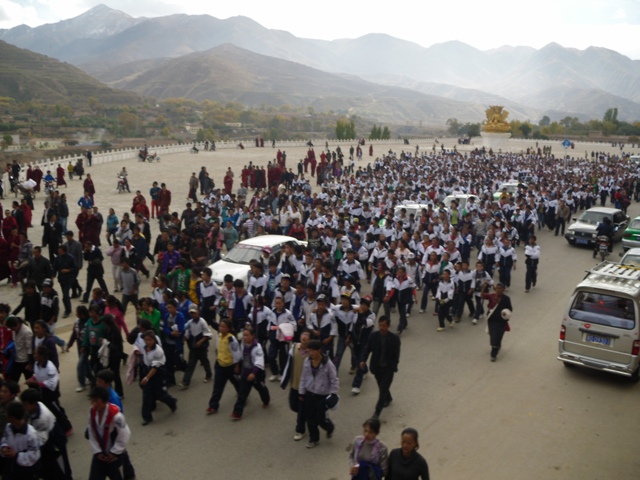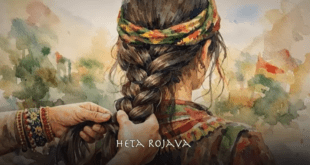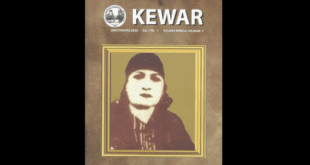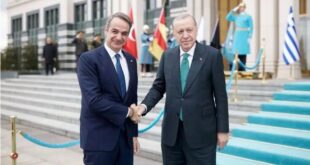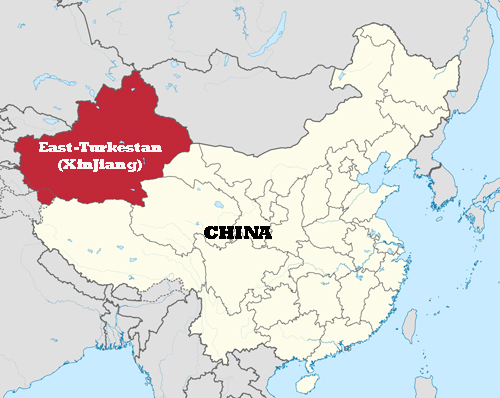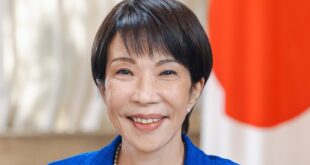The Xinjiang Uyghur Autonomous Region is one of the five officially “autonomous regions” of the People’s Republic of China. A huge area (1,66 million km2), more than double the area of Turkey with about 22 million inhabitants, just 43% of whom are ethnic Uyghurs. The Uyghurs are among the most ancient Turkish tribes, not by chance they call their homeland Eastern Turkestan. The term “Uyghur” for all non nomadic Turkic Muslims of Xinjiang came up just in the 1920ies, while before the Uyghurs were referred to just as “Turki” or Türk. In 1933 and again in 1944 Uyghurs successfully gained their independence, backed by Stalin’s USSR. The second East Turkestan Republic was a puppet Soviet communist state, which was overthrown by Mao’s Red Army, which later, in 1949, founded the “Xinjiang Uyghur Autonomous Region”.
Critical human rights situation
In spite of formal autonomy the human rights situation of the Uyghurs in East Turkestan has continuously worsened since mid of the 1990ies. In February 1997 a first huge demonstration in the region of Ghulja was motivated by increasing suppression of Uyghur culture and religion, including the traditional Uyghur gatherings called meshrep which had again been banned by the Chinese authorities after having been officially allowed only in 1994. The Uyghurs in the area had revived the meshrep in an attempt to revive Islamic culture and to prevent social problems such as alcoholism and drug abuse. The leaders of the local Uyghur communities had also organised soccer leagues, which were also then banned by the authorities and the sports fields were destroyed. Many Uyghurs left their lives in Ghulja 1997.
In July 2009 Uyghurs turned to protest with rallies in the capital town of Urumchi. The July 2009 protest began with a peaceful demonstration that was brutally suppressed by Chinese security forces. The Uyghurs were protesting against a lack of government action in regard to a deadly attack on Uyghur factory workers in Shaoguan, Guangdong Province in the south of China. The violent and illegal reaction of the Chinese security forces to the peaceful protest led then to ethnic violence and riots between Uyghurs and Han Chinese, during which hundreds of Uyghur and Han Chinese civilians were killed. According to data published by the Chinese Xinhua news agency, 197 people were killed, but the World Uyghur Congress estimates – based on eyewitness reports – that more than 1000 people died during the incident. Routinely, the Chinese authorities equate peaceful Uyghur dissent with the so-called “three evils” (terrorism, separatism and religious extremism) in order to justify their human rights violations against the Uyghur people (see: Repression in China- Roots and Repercussions of the Urumqi Unrest, UNPO Report, November 2009 on: http://www.unpo.org/article/10328).
Today under this kind of allegations each kind of demonstration is bloodily repressed, hundreds of Uyghur activists are detained, dozens of Uyghurs every year are executed after fake trials. Uyghurs in East Turkestan suffer an even tighter repression than the Tibetans in the neighbouring Tibet Autonomous Region (see www.uyghurcongress.org).
Autonomy in China?
In China today not only the repression of civil and political rights, but also the emphasis on economic development is threatening the way of life of minority peoples, as they are ever more absorbed into the national mainstream economy. In a large country as Xinjiang with rich mineral and other natural resources, the Chinese State Companies are invading and systematically exploiting this wealth with huge damage to their environment and a growing migration of Han workers. These pernicious effects can particularly be observed in Xinjiang and Tibet. Despite formal autonomy, the management of such a strategy and the power structure on the ground is rather of colonial type. “Autonomy” turnes to be void label for an administration which is tightly controlled by the parallel power structure of the Communist Party. Legal remedies are underdeveloped in the PRC’s legal judiciary system. Autonomy seems to be tolerated only insofar as it does not affect the comprehensive political project of the Communist Party of fully integrating Xinjiang in the mainland’s economy and society. Hence no wonder that the indigenous population does not have any control not only on the development of Xinjiang, but not even on immigration from China mainland. As in Inner Mongolia China slowly is flooding East Turkestan with Han, undermining on the long term any claim of Uyghur people to govern themselves. Sovereignty, national unity and external non-intervention are at the centre (see Thomas Benedikter, “Autonomy” in the People’s Republic of China?, 2012, p. 212 on: http://www.gfbv.at/publikationen/weitere_publikationen.php).
An autonomy just by name
Xinjiang today is an example for what genuine autonomy can not stand for: the people legitimately living in their traditional homeland step by step are put in the condition of a marginal, poor and powerless minority. Disguised with “regional autonomy” what in fact is systematically happening in this country as big as Mongolia is internal colonialism by the state class of neighbouring China. If autonomy means a political and legal framework to govern oneself through freely elected representatives to free institutions with a minimum of real legislative powers, but without disrupting the central state’s sovereignty on that territory, East Turkestan definitely is no such autonomy. As Tibet and the other so called “Autonomous Regions” Xinjiang is an autonomy just by name. Even if we assume that the regional political institutions detain some autonomous powers there two major flaws which do not allow for self-government: on the one hand Uyghurs and smaller ethnic groups are not allowed to freely chose their representatives, there is no democracy at all. On the other hand, even if there are some Uyghur leaders vested with some influent positions, they are little more than puppets of the ruling party, dominated by the Han Chinese and fully dependent at the mercy of Bejing power centres. Autonomy is something different. Hopefully Turkey can intervene to advocate the fundamental rights of the “turki” in China’s Far West.
Thomas Benedikter
Author of Etnik Uyuşmazlığın Özyönetimle Çözümü, edited by ARAM (translation Necat Ayaz), Diyarbakir, in 2013.
 Infowelat Enformasyon Ji Bo Welat
Infowelat Enformasyon Ji Bo Welat
